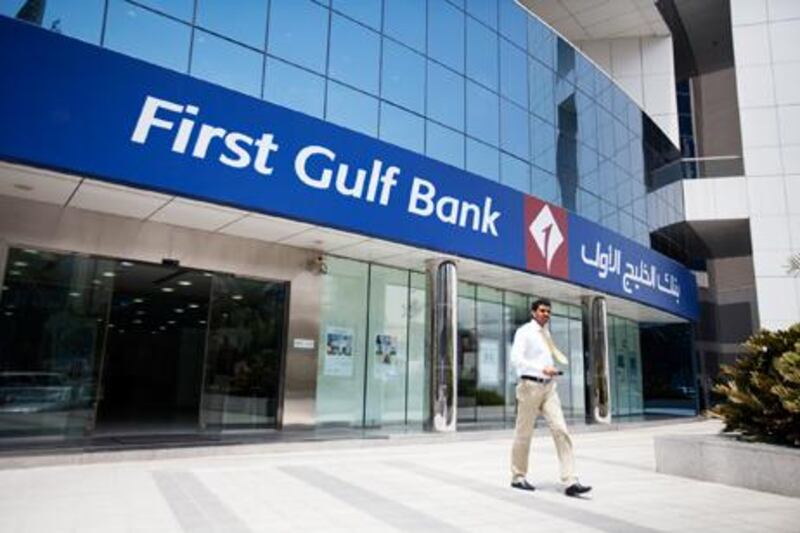[ First Gulf Bank ]
has agreed to buy Dubai Group's consumer finance unit for Dh601 million in a deal that helps advance the investment company's long-running debt restructuring.
Abu Dhabi-based FGB will grow its largely retail banking portfolio through the acquisition of Dubai First, which sells credit cards and motor insurance.
The bank said that Dubai First had assets of about Dh700m at its most recent audit.
The deal was a good fit forFGB, said André Sayegh, the bank's chief executive.
"The innovative 'First' spirit of both companies is evident in our names and we shall nurture the Dubai First brand and its portfolio while utilising the synergies to grow the business and provide excellent consumer advice, products, opportunities and benefits," he said.
It represents the first asset sale from Dubai Group since agreeing with banks on the final terms of a $6bn debt restructuring announced on May 9.
"Since we launched the business in 2007, Dubai First has performed well, even during the turbulent business cycles of recent years, and has built a solid and sustainable book of business," said Fadel Al Ali, the Dubai Group chief executive.
"The sale is a strategic decision for Dubai Group and is part of our stated plan to sell down assets in order to support our broader ongoing restructuring process. We are pleased to have achieved a solid return on our investment."
Sources close to the company said that completion of the restructuring, the last major debt renegotiations of a Dubai government-related company since the emirate's property crash, was "imminent" and could be finalised by the end of the month.
Dubai Group, the arm of
[ Dubai Holding ]
whose asset values plunged as the euro-zone debt crisis hammered its portfolio of financial firms and property companies in Europe and the Middle East, is attempting to restructure $10bn of liabilities, of which $6bn represents bank debts.
KPMG and Norton Rose advised FGB on the deal, while EFG-Hermes, the investment bank, and Freshfields Bruckhaus Deringer represented Dubai Group.
Government-related entities were likely to continue seeking disposals of non-core assets, said Martin Kohlhase, a credit analyst at Moody's Investors Service.
"Apart from market volatility in recent days market conditions have markedly improved compared to three or four years ago, so that the execution of asset disposals is more likely," he said. "Access to capital - debt and equity markets - valuation gains of assets as well as emerging market-receptive investors have all contributed to a more conducive environment for regional M&A."
This month, Economic Zones World, a unit of
[ Dubai World ]
, sold its stake in Gazeley, a logistics company to Brookfield Asset Management.
The deal was the latest in the UAE for Brookfield, which operates a property fund alongside Investment Corporation of Dubai, the investment firm owned by the Dubai Government which owns companies including
[ Emirates Airline ]
and Dubai Duty Free.
Dubai has recently attempted to resolve its lingering debt restructuring concerns during a period of market calm, but a fixed income sell-off has create fresh refinancing challenges.
"Reduced availability of international finance could make it difficult to roll over some of the GREs' and other companies' maturing debt and would raise the overall cost of their borrowing from international markets, straining their balance sheets," the IMF warned the UAE this month, also stressing a deeper than expected slowdown in Asian markets as a key risk factor for the Emirates.
Responding to the IMF's report, Obaid Humaid Al Tayer, Minister of State for Financial Affairs said: "The Ministry of Finance believes in the importance of maintaining relations with other organisations and the international financial community due to the positive effect this has on the economic and financial system in the UAE and in strengthening its position on the world map and attract investments."
UAE companies' Islamic bond yields, as tracked by the HSBC/Nasdaq Dubai US dollar sukuk index, spiked 40.8 basis points on Friday to 4.46 per cent, an 18-month high. Bond yields move in the opposite direction from prices.
A number of emerging market companies and governments have pulled bond sales in recent weeks because of market volatility. In Dubai, the mall operator
[ MAF Holding ]
put a planned bond sale on hold last month.





